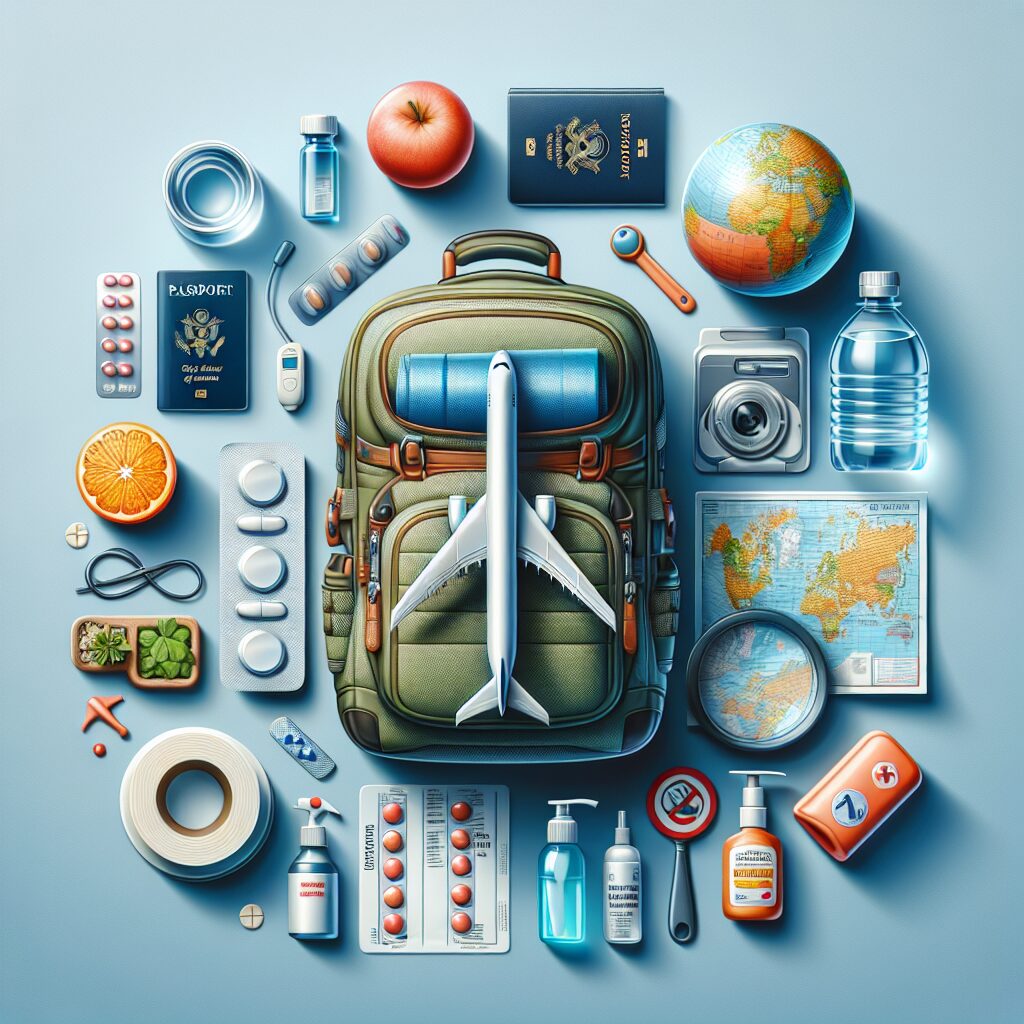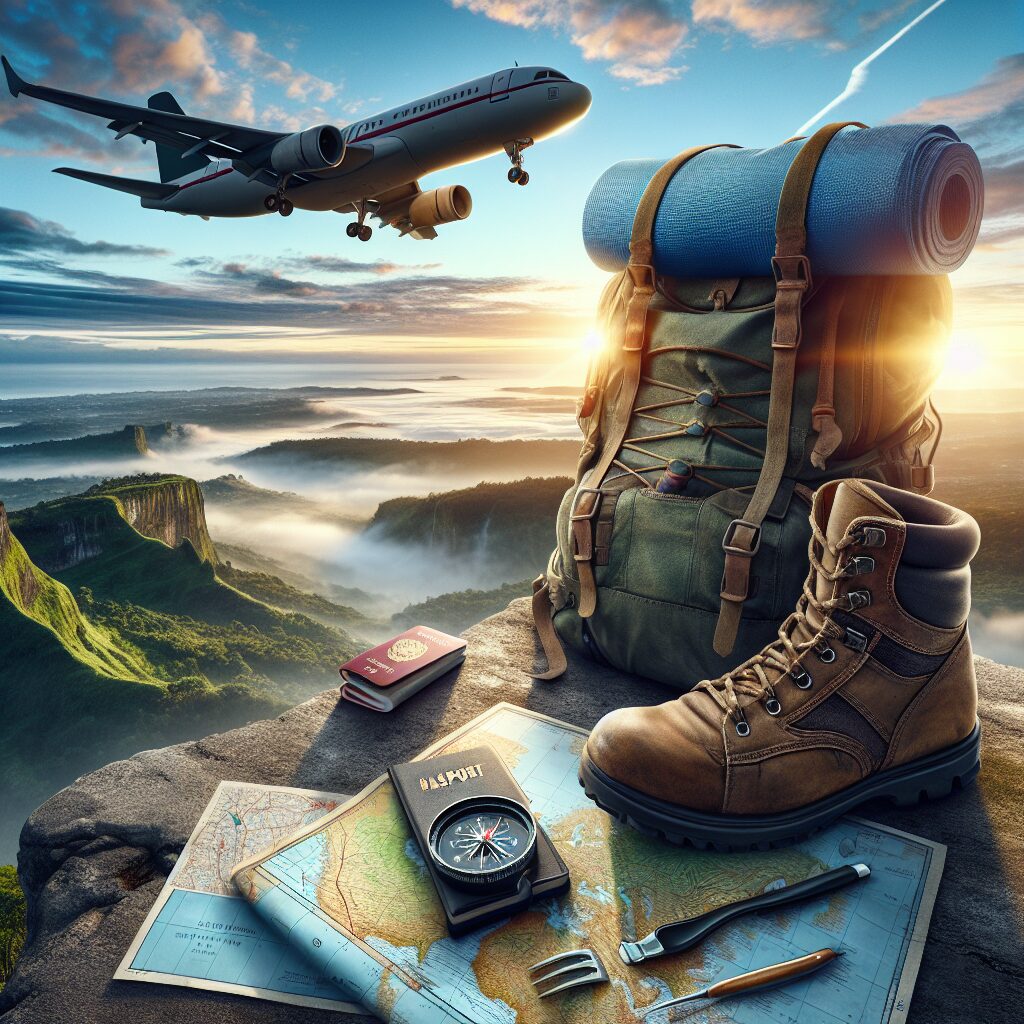Currency Exchange Tips for Travel Abroad
When embarking on a journey to a foreign land, currency exchange becomes an inevitable part of the travel experience. For those unacquainted with the intricacies of monetary exchange, the process can be confusing and even overwhelming. Understanding the basics of currency conversion and being aware of key tips can greatly aid travelers in maximizing their funds and simplifying their financial transactions while abroad.
One unique fact about currency exchange is that exchange rates fluctuate constantly due to various economic factors. This means that the value of a particular currency can change within a matter of minutes or hours. These fluctuations can significantly impact the purchasing power of travelers and may result in either gain or loss depending on the situation. Therefore, it is crucial for travelers to closely monitor exchange rates and plan their currency conversions strategically to ensure they get the best value for their money.
Now that we have gained some insights into the dynamics of currency exchange, let us delve into the key takeaways to help travelers navigate this realm more effectively. In the following sections, we will discuss essential tips such as researching exchange rates beforehand, understanding transaction fees, utilizing local ATMs, and considering alternative payment options. By implementing these strategies, travelers can avoid unnecessary fees, manage their finances efficiently, and make the most of their international adventures.
Key Takeaways
1. Exchange currency before traveling: It is recommended to exchange currency before traveling abroad to avoid high fees and unfavorable exchange rates at airports and tourist areas.
2. Research exchange rates and fees: Before exchanging currency, it is important to research the current exchange rates and compare fees charged by different exchange services to ensure you get the best deal.
3. Use local ATMs for cash withdrawals: Using local ATMs in your travel destination can be more cost-effective than exchanging large amounts of cash in advance. However, be aware of any foreign transaction or ATM fees that your bank may charge.
4. Notify your bank and credit card companies: Inform your bank and credit card companies in advance about your travel plans to avoid your cards being blocked or flagged for suspicious activity when used overseas.
5. Be cautious with credit card usage: While credit cards are widely accepted, especially in popular tourist areas, be cautious of potential fraud and fees. It is advisable to use cash for small purchases and prefer reputable establishments when using your credit card.
How to Get the Best Currency Exchange Rates for Traveling Abroad?
Understanding the Basics of Currency Exchange
Before delving into currency exchange tips, it’s important to grasp the fundamental concepts. Currency exchange refers to the process of converting one currency into another, typically for travel or international commerce. Exchange rates determine the value of each currency and can vary based on various factors such as economic stability, political events, and market forces.
Researching Exchange Rates in Advance
Prior to your trip, it’s crucial to research and monitor the exchange rates of the destination country. Exchange rates fluctuate daily, so keeping an eye on them will help you identify favorable times to exchange your currency. Utilize reliable online sources or currency conversion apps to stay updated on the latest rates and trends.
Avoiding Airport Currency Exchange Services
While it may be convenient to exchange your currency at the airport, it’s often not the best option. Airport currency exchange services typically offer less favorable exchange rates and charge high commissions or fees. Consider exchanging a small amount of currency for immediate expenses and explore better options in the city or town you’re visiting.
Comparing Exchange Rates and Fees
When looking for the best currency exchange rates, it’s essential to shop around and compare rates and fees at different locations. Banks, credit unions, independent exchange offices, and online services are all viable options. Thoroughly research the rates and additional fees associated with each provider to ensure you’re getting the most favorable deal.
Using Local ATMs
Using local ATMs at your destination can often provide competitive exchange rates. However, be cautious of excessive ATM withdrawal fees or foreign transaction fees imposed by your bank. Consult your bank beforehand to understand their policies and consider using ATMs affiliated with major banks or reputable establishments for better rates and lower charges.
Consider Using Prepaid Travel Cards
Prepaid travel cards are an increasingly popular option for international travelers. These cards allow you to load different currencies onto a single card, providing convenience and security. They generally offer competitive exchange rates and can be used like a debit or credit card. Additionally, they can help you stick to a budget and easily track your spending.
Be Cautious of Dynamic Currency Conversion
When making card payments abroad, particularly at hotels, restaurants, or shops, you may encounter dynamic currency conversion. This means the merchant offers to convert your payment into your home currency on the spot. While it may seem convenient, this service often includes unfavorable exchange rates and additional fees. Opt to pay in the local currency to avoid unnecessary charges.
Inform Your Bank and Credit Card Provider
Before traveling, inform your bank and credit card provider about your plans to avoid any unexpected payment issues. Informing them of your travel dates and destinations will help prevent potential fraudulent activities, such as your card being blocked due to suspicion of unauthorized transactions. Additionally, inquire about any international transaction fees or restrictions to plan your finances accordingly.
Consider Carrying Multiple Forms of Currency
While it’s essential to have local currency in cash, carrying multiple forms of currency can be advantageous. Having a combination of cash, prepaid travel cards, and credit or debit cards provides flexibility and ensures you have backup options in case of emergencies or unexpected situations.
Top Currency Exchange Tips for Traveling Abroad:
- When is the best time to exchange currency before your trip?
- What factors should you consider when comparing exchange rates and fees?
- Are airports the best place to exchange currency?
- How can using local ATMs help you save on currency exchange?
- What are the advantages of using prepaid travel cards?
- How does dynamic currency conversion work, and should you opt for it?
- Why is it important to inform your bank and credit card provider before traveling abroad?
- What are the benefits of carrying multiple forms of currency?
FAQ
1. Can I exchange currency at the airport?
Yes, most airports have currency exchange counters where you can exchange your money. However, be aware that these counters often charge higher fees and offer less favorable exchange rates compared to other options.
2. How much money should I exchange before I travel?
It’s advisable to exchange a small amount of local currency before your trip to cover immediate expenses such as transportation and meals upon arrival. However, it’s generally recommended to exchange the majority of your money at your destination, where you can get better rates and avoid carrying excessive cash.
3. Should I use my credit card or debit card for currency exchange?
Using a credit card for currency exchange can be convenient, but it often involves additional fees and unfavorable exchange rates. On the other hand, using a debit card at ATMs in your destination country typically offers better rates, but be sure to inform your bank beforehand to avoid any issues with card usage.
4. Is it better to exchange money at a bank or a currency exchange counter?
Both banks and currency exchange counters are viable options, but banks generally offer more competitive rates and lower fees. It’s recommended to compare rates and fees from different sources before making a decision.
5. Should I exchange all my money at once or in small amounts throughout my trip?
Exchanging small amounts throughout your trip can be beneficial to avoid carrying large amounts of cash and to take advantage of possible fluctuations in exchange rates. However, keep in mind that multiple exchanges may result in additional fees.
6. Can I exchange foreign coins?
Exchanging foreign coins can sometimes be difficult, as many currency exchange services only accept paper currency. However, some banks or specialized coin exchange services may be able to assist you with this.
7. What happens if I have leftover foreign currency after my trip?
You can either keep the leftover currency as a souvenir or exchange it back to your home currency. Many banks and currency exchange services offer this service, but be aware that the rates for exchanging back to your home currency may not be as favorable.
8. Are there any fees or commissions involved in currency exchange?
Yes, most currency exchange services charge fees or commissions for their services. These fees can vary, so it’s important to compare rates and fees from different providers to get the best deal.
9. Should I notify my bank before traveling abroad?
Absolutely! Informing your bank about your travel plans ensures that your debit or credit card won’t be flagged for suspicious activity while abroad. It also allows your bank to provide you with any essential information or advice regarding currency exchange and card usage.
10. Is it safe to use ATMs for currency exchange?
Using ATMs for currency exchange is generally safe. However, it’s crucial to choose ATMs located in well-lit, secure areas such as banks or shopping centers. Additionally, be cautious of possible skimming devices and shield your PIN while entering it.
Final Thoughts on Currency Exchange Tips for Travel Abroad
When traveling abroad, understanding currency exchange tips can greatly enhance your financial efficiency and convenience. By following these tips, like comparing exchange rates, using debit cards at ATMs, and exchanging money at reputable institutions, you can save money on fees and secure better rates. It’s advisable to plan ahead, research your options, and always keep an eye on exchange rates to make the most of your travel funds.
Remember, currency exchange rates fluctuate, so it’s essential to stay informed and adjust your exchange strategy accordingly. By being mindful of potential scams or unfavorable rates, you can make your currency exchange experience a smooth and beneficial one, allowing you to focus on enjoying your journey and creating lasting memories.





